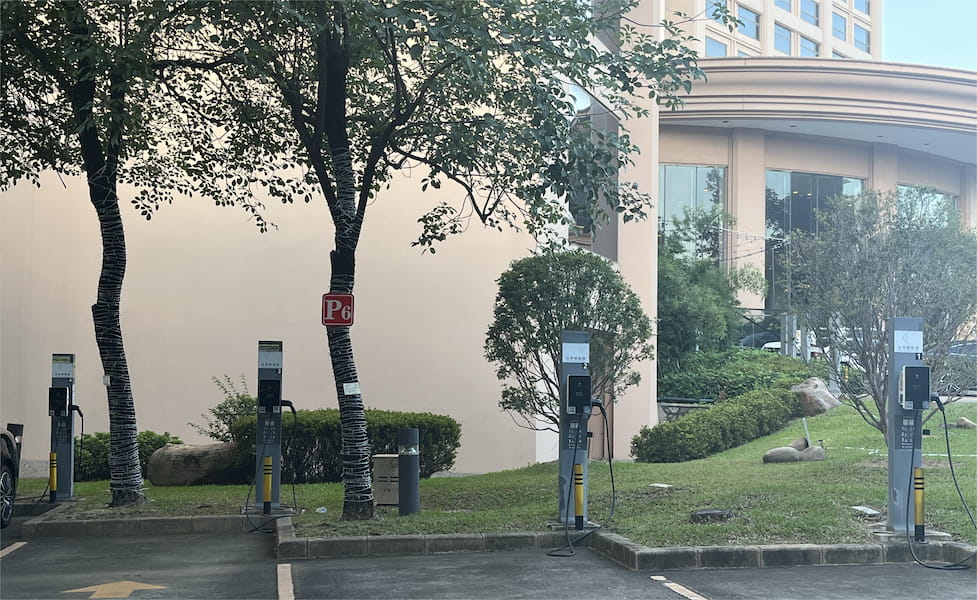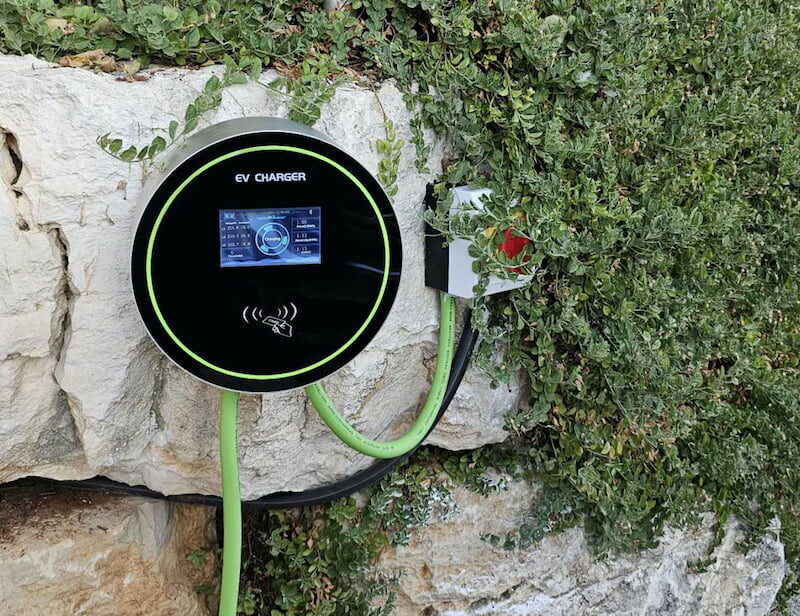Introduction
Installing an electric car charging station is a significant decision that requires careful consideration of several factors. The location and accessibility of the charging station play a crucial role in ensuring convenience for both car owners and businesses. Additionally, assessing the cost, infrastructure requirements, and understanding the needs of the target audience are essential steps in making an informed decision. By taking these factors into account, individuals can contribute to the growth of electric vehicle infrastructure and promote sustainable transportation. In this blog post, we will explore the top factors to consider before installing an EV charging station, providing valuable insights for car owners, businesses, and property owners alike.
Location and Accessibility

When it comes to installing an electric car charging station, choosing the right location is of utmost importance. The charging station should be easily accessible for car owners, ensuring convenience and encouraging their use. For businesses, strategic placement of the charging station can attract customers and increase foot traffic. When selecting a location, consider proximity to main roads, parking areas, and popular destinations. This will ensure that the charging station is visible and easily reachable for potential users.
In addition to choosing the right location, ensuring accessibility is crucial. Install charging stations in well-lit and safe areas to provide a sense of security for users. Consider the availability of parking spaces near the charging station to accommodate vehicles during the charging process. Clear signage indicating the presence of a charging station can also help users locate it easily. Moreover, it’s important to take into account accessibility for disabled individuals by providing appropriate infrastructure such as ramps or designated parking spots.
By carefully considering both the location and accessibility factors, you can maximize the usage of your electric car charging station and cater to the needs of car owners while also benefiting businesses in terms of customer attraction and satisfaction.
Cost and Infrastructure Requirements
Installing an electric car charging station involves considering the cost and infrastructure requirements associated with the project. The cost of installation can vary depending on the location and specific factors involved. It is important to take into account expenses such as electrical upgrades, trenching, and equipment costs. To get accurate cost estimates, it is advisable to consult with professionals who specialize in charging station installations.
In addition to costs, assessing the infrastructure requirements is crucial for a successful installation. It is essential to evaluate the electrical capacity and availability at the chosen site. This includes considering whether additional electrical panels or transformers are needed to support the charging station’s power demands. Furthermore, it is important to assess the impact on the existing electrical system and determine if any upgrades are necessary to accommodate the charging station.
By carefully considering both cost and infrastructure requirements, you can ensure that your electric car charging station installation is efficient, effective, and meets all necessary specifications. Consulting with professionals will help you navigate these considerations and make informed decisions regarding your project.
Choosing the Right Charging Station
Selecting the right charging station is a critical decision when installing an electric car charging station. To make an informed choice, it is important to determine the needs of your target audience. Consider their charging requirements, including the average charging time and power output needed. This will help you choose between Level 2 or DC rapid charging stations based on their usage patterns and preferences.
In addition to meeting basic charging needs, it is essential to consider the features offered by different charging stations. Evaluate additional features such as payment options and connectivity. Some charging stations may offer convenient payment methods like mobile apps or RFID cards, while others may provide advanced connectivity options for monitoring and managing the station remotely. Our ev charging stations support RFID, APPS and OCPP connectivity, but for household use, the play and plug is the basic for ev owner to charge their car.
Compatibility with different electric vehicle models is another crucial factor to consider. Ensure that the chosen charging station supports a wide range of electric vehicles to cater to a broader audience. Researching the reputation and reliability of charging station manufacturers is also recommended. Look for well-established manufacturers known for producing high-quality and durable charging stations.
By carefully considering both the target audience’s needs and the features offered by different charging stations, you can select a solution that meets your specific requirements and provides an optimal user experience for electric vehicle owners.
Permits and Regulations
Before installing an electric car charging station, it is crucial to navigate the necessary permits and regulations. Researching and complying with local building codes and regulations is essential to ensure a smooth installation process. This includes obtaining permits for electrical work and charging station installation. To ensure compliance, it is advisable to consult with local authorities or electricians who are familiar with the specific requirements in your area.
In addition to permits, it is important to prioritize safety standards when installing a charging station. Ensuring that the charging station meets safety standards and certifications is vital for the protection of users and property. Consider fire safety measures, such as proper wiring and electrical code compliance, to minimize any potential risks. Consulting with professionals experienced in charging station installations will help ensure a safe installation that adheres to all necessary safety guidelines.
By obtaining the necessary permits and complying with safety standards, you can install an electric car charging station that meets all legal requirements while prioritizing the well-being of users. It is always recommended to seek guidance from professionals who have expertise in this field to ensure a successful installation process.
Incentives and Rebates
Exploring available incentives and rebates is an important aspect to consider before installing an electric car charging station. Researching government incentives and grants for charging station installations can provide valuable financial support. Many governments offer programs aimed at promoting the adoption of electric vehicles, which may include funding opportunities for charging infrastructure. Additionally, utility companies often have their own programs and rebates to encourage the installation of charging stations.
When considering incentives, it is essential to evaluate the potential return on investment and long-term savings. Installing a charging station can attract more customers or tenants, leading to increased revenue for businesses or property owners. Furthermore, offering convenient charging options can enhance customer satisfaction and loyalty.
To offset installation costs, it is advisable to calculate the potential savings from incentives and rebates. Some jurisdictions also offer tax credits or deductions specifically for charging station installations. Consulting with professionals or financial advisors who specialize in electric vehicle infrastructure can provide guidance on navigating these incentives and maximizing your savings.
By exploring available incentives and rebates, you can significantly reduce the upfront costs associated with installing an electric car charging station. Taking advantage of these opportunities not only makes the investment more financially feasible but also contributes to the growth of sustainable transportation infrastructure.
Conclusion
Considering the various factors discussed in this blog post will enable car owners, businesses, and property owners to make informed decisions when installing an electric car charging station. The location and accessibility of the charging station, along with cost and infrastructure requirements, play a crucial role in its success. Choosing the right charging station, complying with permits and regulations, and exploring available incentives and rebates are equally important considerations. By carefully assessing these factors, individuals can contribute to the growth of electric vehicle infrastructure and promote sustainable transportation for a greener future.









